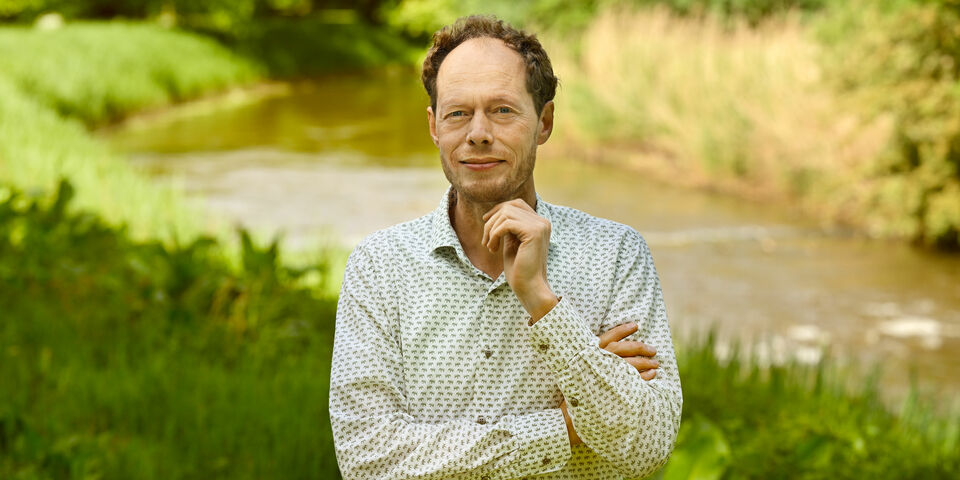Free Egbert
This week carp Egbert was freed from his lonely existence in the TU/e pond after eight years. Employees had sounded the alarm - a lonely existence is a fish-unworthy existence.
Something had to be done. But what? A carp expert was called in. He came, carefully removed the fish from the water, checked it for diseases, and then released Egbert elsewhere. There, among other fish, he may start a new life. A slick video was made, and Egbert even made the national news. We saved a fish. It may have cost a bit, but with heart and mind, we did the only right thing.
Or didn't we? Egbert's move solves the wrong problem: that of one fish’s loneliness. But it ignores the real problem – a large, dead pond in the middle of the campus. A pond that looks beautiful on the drawing board but has virtually nothing to offer. Not even for a fish.
This happens often, unfortunately: we care about a single animal but forget about the species and nature as a whole. We miss the proverbial big picture. Orca “Free Willy” had a crooked dorsal fin because it had always lived in a tank that was too small. The poor animal had to – and would – be released: first in a movie (1993), later in real life (2002). Meanwhile, we are emptying the oceans, threatening wild populations of orcas.
Polar bear Knut was abandoned by his mother in Berlin. True Knutmania ensued – he, too, had to be saved. But to what end? A lifetime of doing sentry duty in the zoo? Meanwhile, global greenhouse gas emissions continue to rise, and the polar bear as a species is seriously threatened by the melting away of its habitat.
TU/e should have enriched the pond instead of further impoverishing it. Introduce aquatic plants, water snails, amphibians, and other fish species. Create a natural bank and an island where waterfowl can nest undisturbed. Good for the pond, good for biodiversity – and good for students and staff.
Pieter Pauw is assistant professor in the Technology, Innovation and Society group. The views expressed in this column are his own.


Discussion